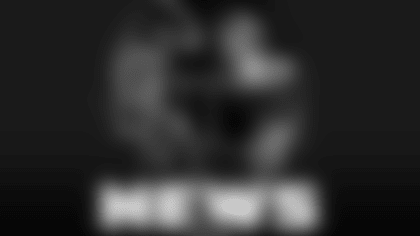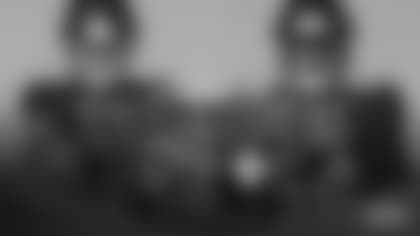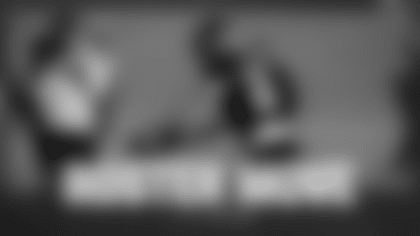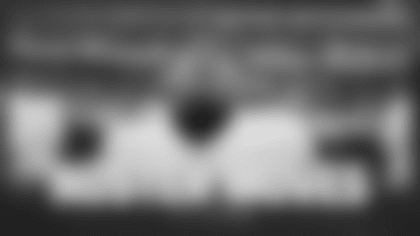WITHIN AN EPIPHANY — I have to be honest with y'all: I have always believed in the idea of halftime adjustments.
For as long as I can remember, whenever someone asked a question about halftime adjustments I would picture a coach coming down from on high (the coaching box) to the lowly dungeon (the locker room). In a darkened corner — perhaps there's an old air conditioning unit dripping overhead — the coach in question gathers his unit around him, opens up his playbook as light shines from the glow of his Microsoft Surface (sponsor plug in this vision). He then proceeds to mega-mind the crap out of the first-half play, telling his players exactly what their opponent is doing, exactly how they're doing it and exactly how to stop it. Then, the team comes out of the locker room after halftime and makes the necessary adjustments to win the game.
And scene...
*record scratch*
As I have grown up, I actually find that I no longer believe in halftime adjustments and this picturesque way to view the game and the strategy of it. Do I believe that adjustments can be made? Of course. We see teams doing so all the time, but I don't think "halftime adjustments" are all they're cracked up to be. Yes, its a good time for playmakers to discuss what they are seeing face-to-face with their coaches and coordinators. But it's not this magical pill. And sometimes an adjustment that makes the biggest difference is the players themselves just settling into the game. For some reason, that is how I view this Falcons defensive unit in 2024, with their second-half performances being an indicator of this viewpoint even in their most recent loss to the Saints.
Let's be honest, again: The first half of Sunday's loss wasn't good for this defense. In fact, it was one of their most inconsistent halves of the year. They played uncharacteristically, giving up 265 total yards from scrimmage (196 through the air with a handful of explosive plays allowed). They aren't notorious for doing that, and yet, Marquez Valdes-Scantling had over 100 yards of offense in the first half alone on three plays.
And when the team came out from halftime, the Saints accumulated 53 yards on two plays in their second drive of the second half. It felt like things weren't changing. That is, until they did.
When it really mattered, the defense locked down the Saints' offensive attack in their final four drives, forcing a three-and-out in each instance and giving the offense the chance to take over the game. So, it begged the questions: What changed? What adjustment did they make in those moments? Honestly, having gone back and checked the tape, they didn't fundamentally change anything. What they were doing just started working.

When the Saints handed the ball off to Alvin Kamara, instead of picking up six yards (like he was prone to do early), he was picking up less than two. Eddie Goldman and David Onyemata were especially important in the slowing down of the Saints' run game in the second half. As the game settled in, so, too, did the Falcons secondary. The Falcons moved A.J. Terrell to shadow Valdes-Scantling in the second half, while the rest of the coverage got stickier. A few pressures by the defensive front flushed Derek Carr out of the pocket resulting in a few timely incompletions late. Again, none of this was because the Falcons jumped ship and changed what they were doing defensively.
Honestly? They just started playing better, and making plays along the way. Think Justin Simmons' third-down pass breakup to start the second half. Or Dee Alfords' third-down tackle that dropped Juwan Johnson just short of the line to gain in the fourth quarter. A little luck was on their side as well, take the last offensive play by the Saints when Kamara dropped a wide-open pass from Carr on a wheel route. It probably would have been a touchdown. But I digress...
What also helped was that the Falcons forced more second-and-long or second-and-medium moments for the Saints to a degree they weren't in the first half. In six of the Saints' 10 total drives on the day, their first play resulted in gain of more than five yards. Three of the four drives that had starts of less than five came in the final quarter of the game, when the Falcons were able to force all those three-and-outs.
I do think there is something to be said about a defense being a living entity. It breathes and evolves as play continues and it learns more about its opponent. It's almost like how a lioness stalks her prey. It's not an immediate kill. She lays in wait, buying her time while picking up on the subtle movements that will be the difference in escape or capture of her intended target. That's how I now view the intake of defensive strategies, because that's how I've seen this Falcons defense operate week in and week out in 2024. It's not a perfect unit, but it does have a knack for evolving as the game does, as its individual pieces learn more on the fly.
I know that doesn't change the fact that the first half wasn't up to par, nor does it change the fact the Falcons ultimately lost the game, their first loss in NFC South play. I guess that's not what I am trying to do here. Call it looking for a silver lining in a game shrouded in Saints gold.
Immerse yourself in the subtle drama of the Falcons-Saints meetup at Caesars Superdome with our monochrome snapshots from Week 10, shot on Sony.
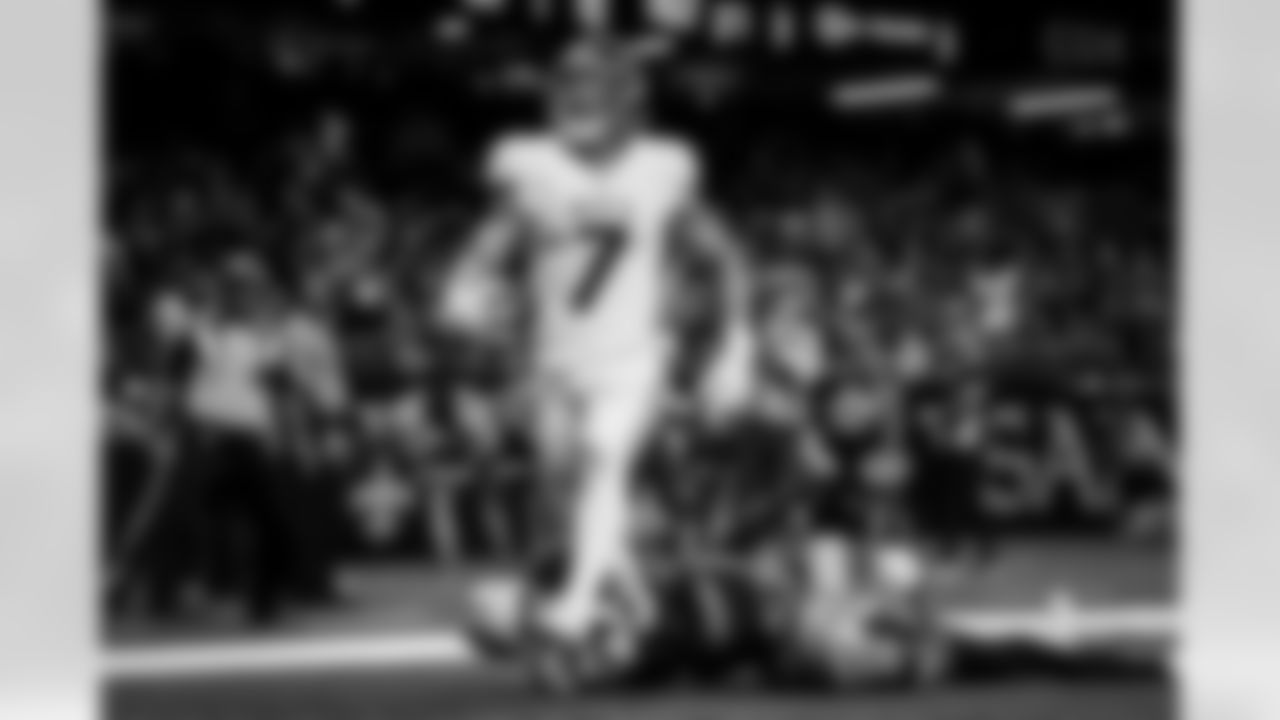
Atlanta Falcons running back Bijan Robinson #7 celebrates after a touchdown during the third quarter of the Week 10 Game against the New Orleans Saints at Caesars Superdome in New Orleans, Louisiana on Sunday, November 10, 2024. (Photo by Jay Bendlin/Atlanta Falcons)
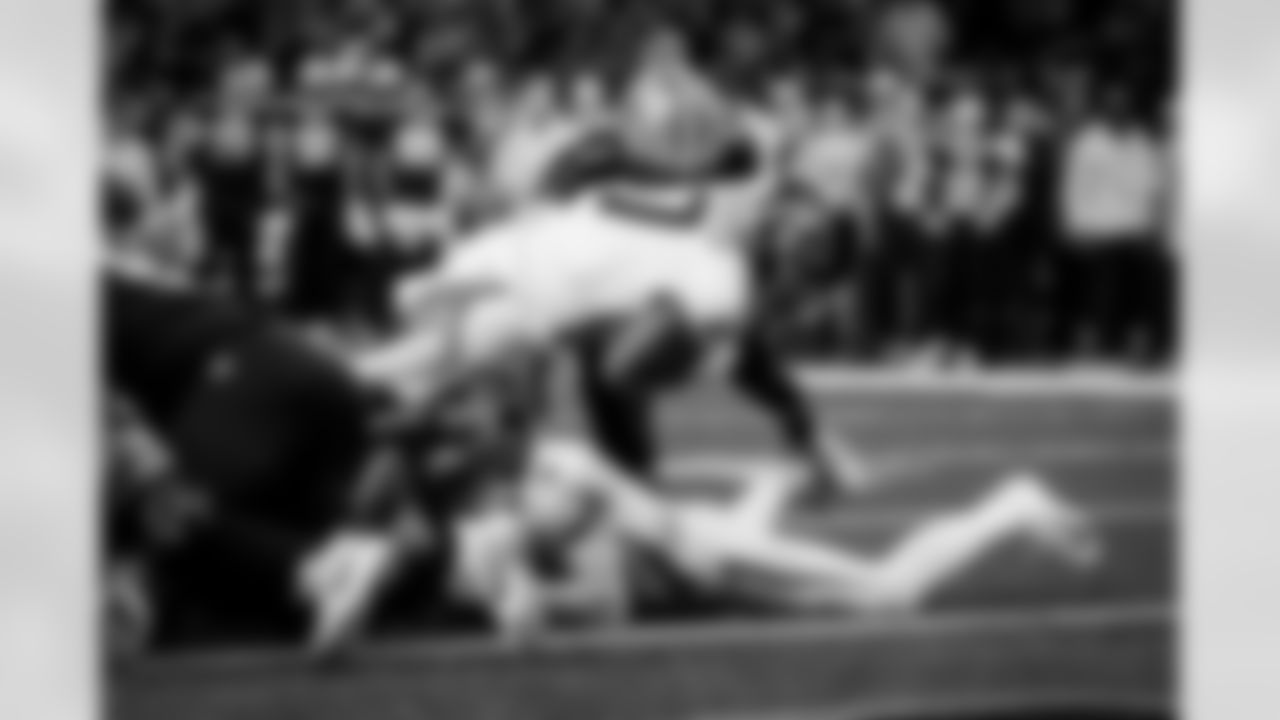
Atlanta Falcons running back Bijan Robinson #7 scores a touchdown during the second quarter of the Week 10 Game against the New Orleans Saints at Caesars Superdome in New Orleans, Louisiana on Sunday, November 10, 2024. (Photo by Taylor McLaughlin/Atlanta Falcons)
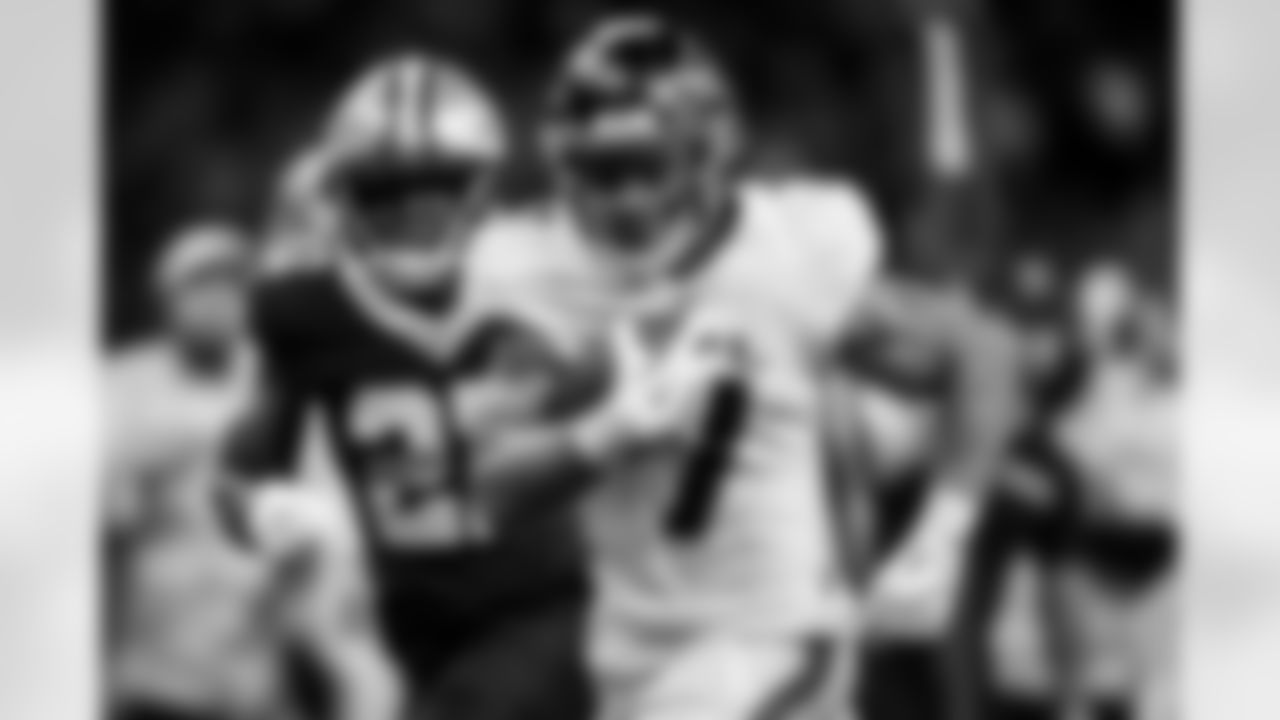
Atlanta Falcons running back Bijan Robinson #7 rushes for a touchdown during the third quarter of the Week 10 Game against the New Orleans Saints at Caesars Superdome in New Orleans, Louisiana on Sunday, November 10, 2024. (Photo by Jay Bendlin/Atlanta Falcons)

Atlanta Falcons defensive lineman Ta'Quon Graham #95 in the locker room prior to the Week 10 Game against the New Orleans Saints at Caesars Superdome in New Orleans, Louisiana on Sunday, November 10, 2024. (Photo by Shanna Lockwood/Atlanta Falcons)
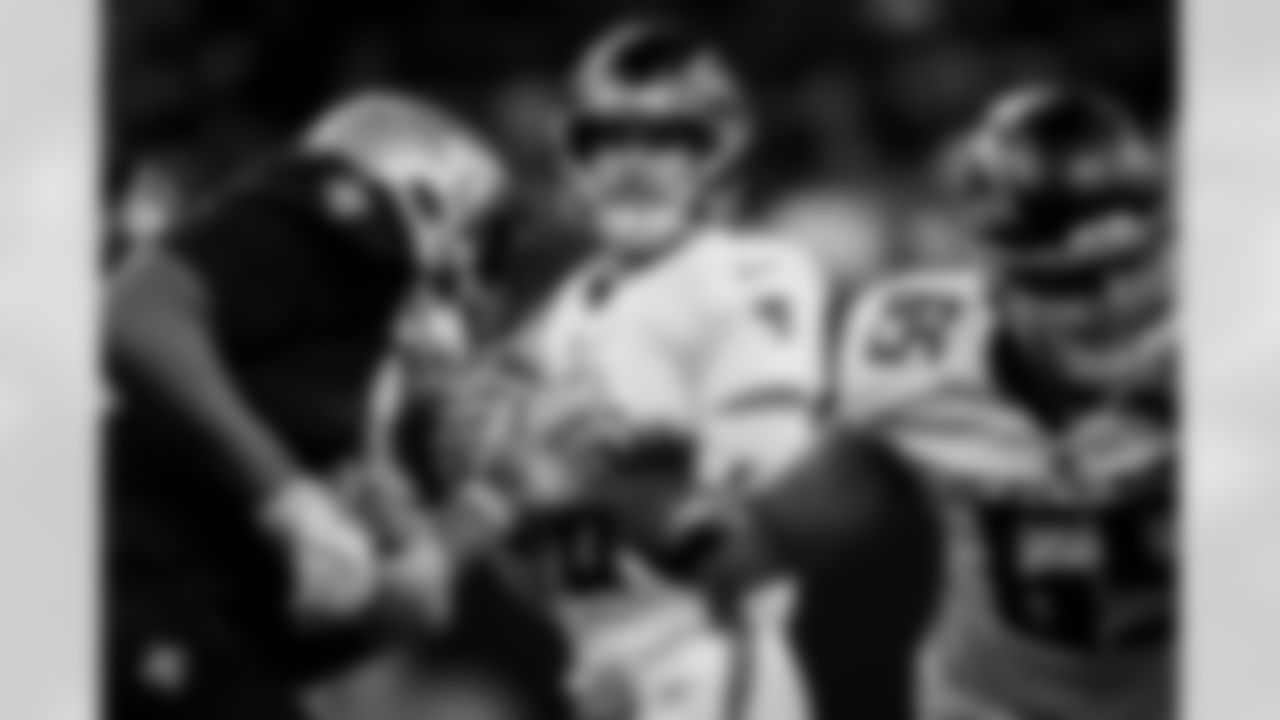
Atlanta Falcons quarterback Kirk Cousins #18 looks to pass during the second quarter of the Week 10 Game against the New Orleans Saints at Caesars Superdome in New Orleans, Louisiana on Sunday, November 10, 2024. (Photo by Jay Bendlin/Atlanta Falcons)
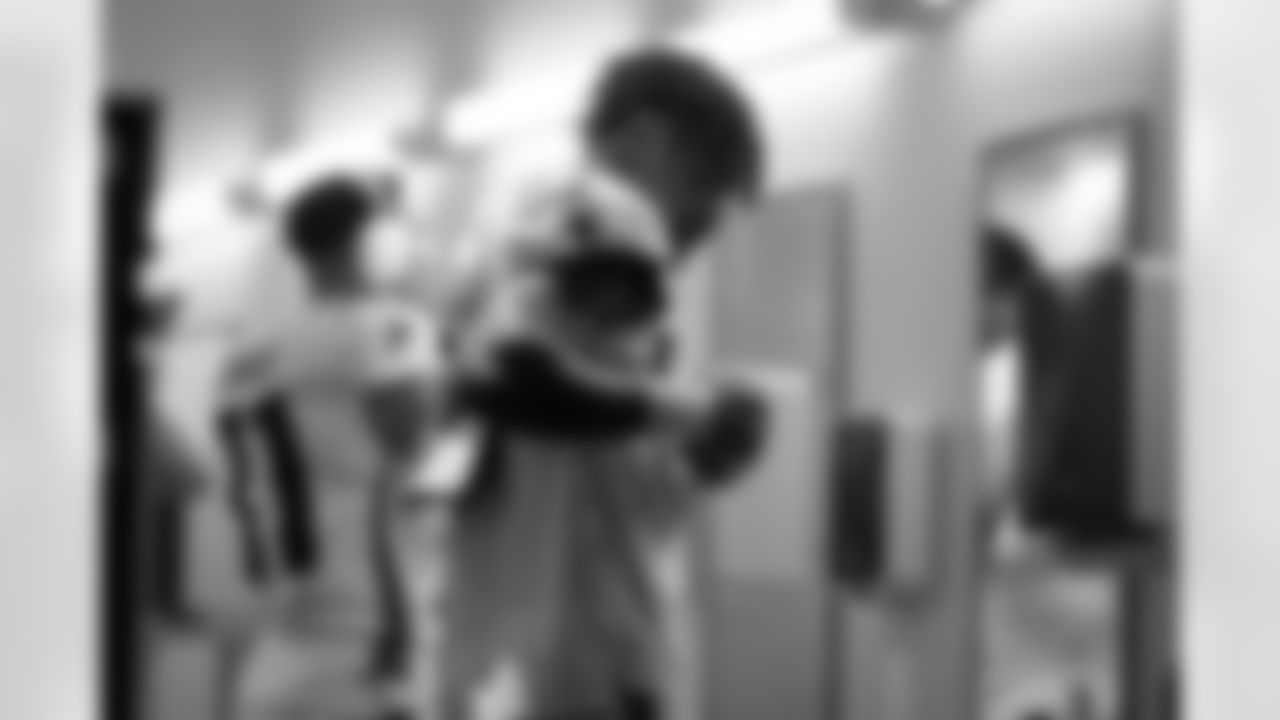
Atlanta Falcons cornerback A.J. Terrell #24 in the locker room prior to the Week 10 Game against the New Orleans Saints at Caesars Superdome in New Orleans, Louisiana on Sunday, November 10, 2024. (Photo by Shanna Lockwood/Atlanta Falcons)

Atlanta Falcons cornerback Dee Alford #20 warms up prior to the Week 10 Game against the New Orleans Saints at Caesars Superdome in New Orleans, Louisiana on Sunday, November 10, 2024. (Photo by Shanna Lockwood/Atlanta Falcons)

Atlanta Falcons quarterback Kirk Cousins #18 prior to the Week 10 Game against the New Orleans Saints at Caesars Superdome in New Orleans, Louisiana on Sunday, November 10, 2024. (Photo by Shanna Lockwood/Atlanta Falcons)

Atlanta Falcons defensive end James Smith-Williams #50 departs the hotel prior to the Week 10 Game against the New Orleans Saints at Caesars Superdome in New Orleans, Louisiana on Sunday, November 10, 2024. (Photo by Shanna Lockwood/Atlanta Falcons)

Atlanta Falcons quarterback Kirk Cousins #18 in the locker room prior to the Week 10 Game against the New Orleans Saints at Caesars Superdome in New Orleans, Louisiana on Sunday, November 10, 2024. (Photo by Shanna Lockwood/Atlanta Falcons)
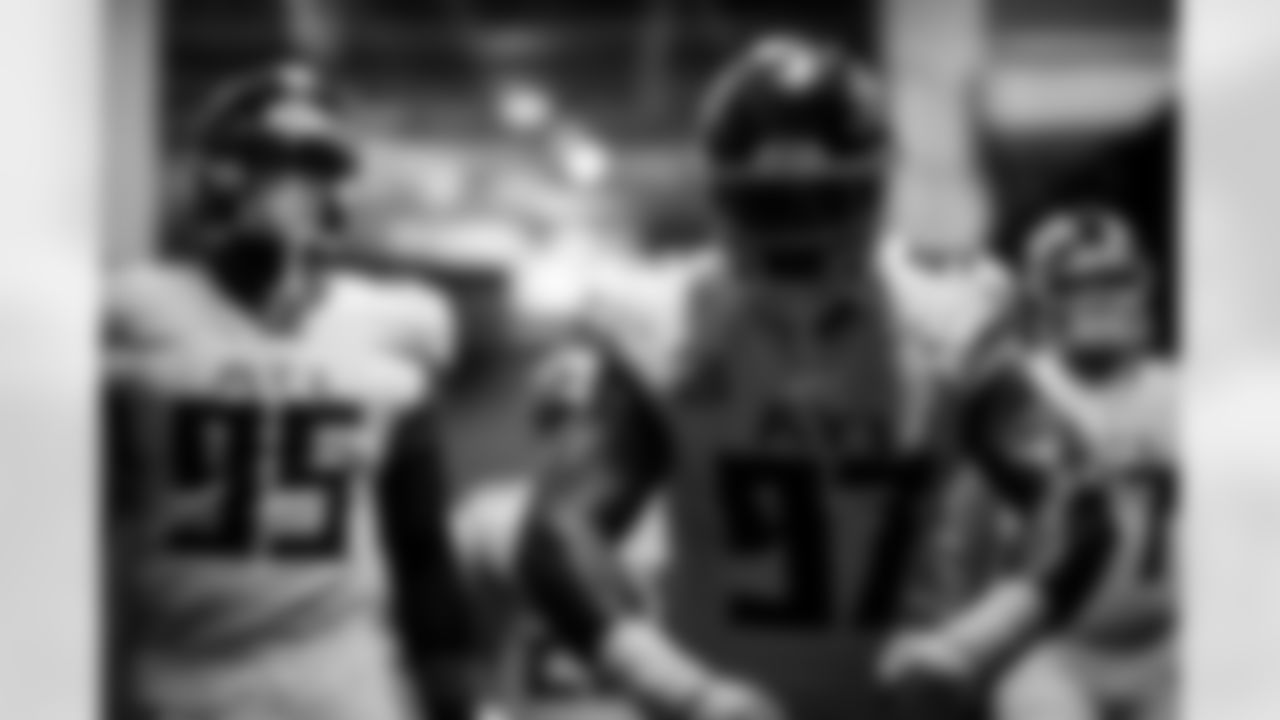
Atlanta Falcons defensive lineman Grady Jarrett # 97 prior to the Week 10 Game against the New Orleans Saints at Caesars Superdome in New Orleans, Louisiana on Sunday, November 10, 2024. (Photo by Shanna Lockwood/Atlanta Falcons)
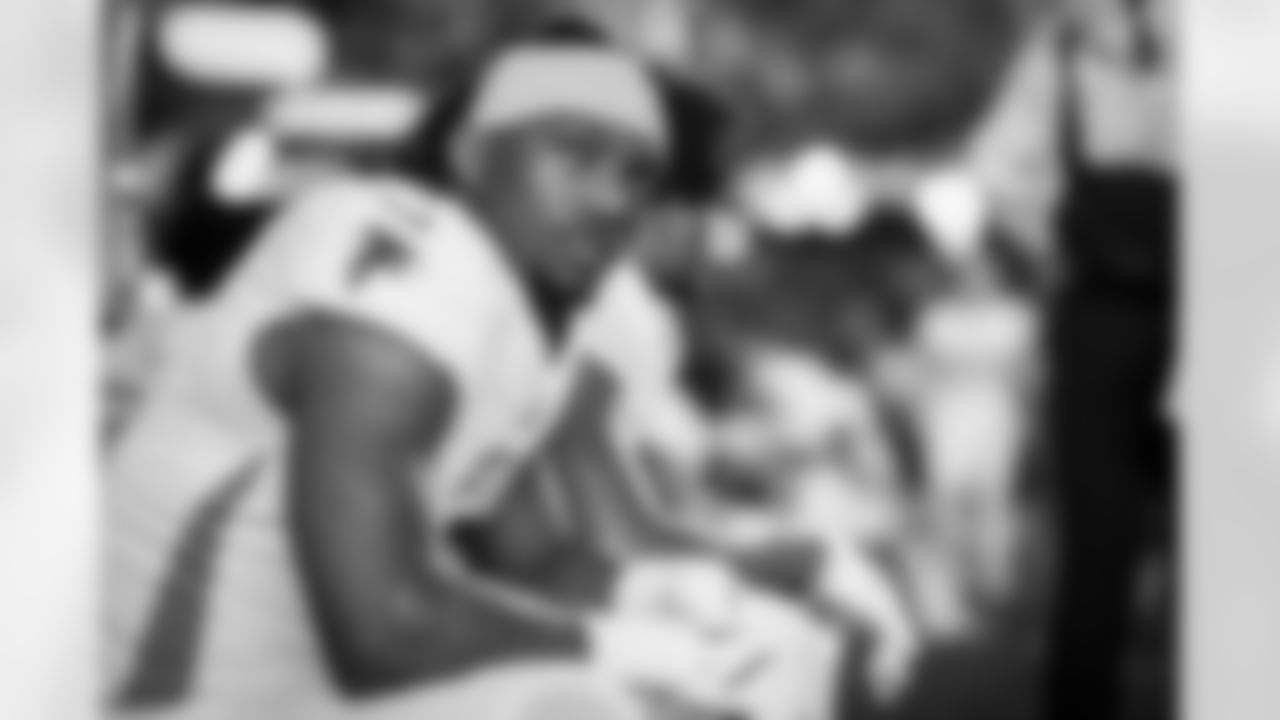
Atlanta Falcons running back Bijan Robinson #7 prior to the Week 10 Game against the New Orleans Saints at Caesars Superdome in New Orleans, Louisiana on Sunday, November 10, 2024. (Photo by Shanna Lockwood/Atlanta Falcons)

Atlanta Falcons inside linebacker Nate Landman #53 prior to the Week 10 Game against the New Orleans Saints at Caesars Superdome in New Orleans, Louisiana on Sunday, November 10, 2024. (Photo by Shanna Lockwood/Atlanta Falcons)

Atlanta Falcons owner Arthur Blank and guests prior to the Week 10 Game against the New Orleans Saints at Caesars Superdome in New Orleans, Louisiana on Sunday, November 10, 2024. (Photo by Shanna Lockwood/Atlanta Falcons)
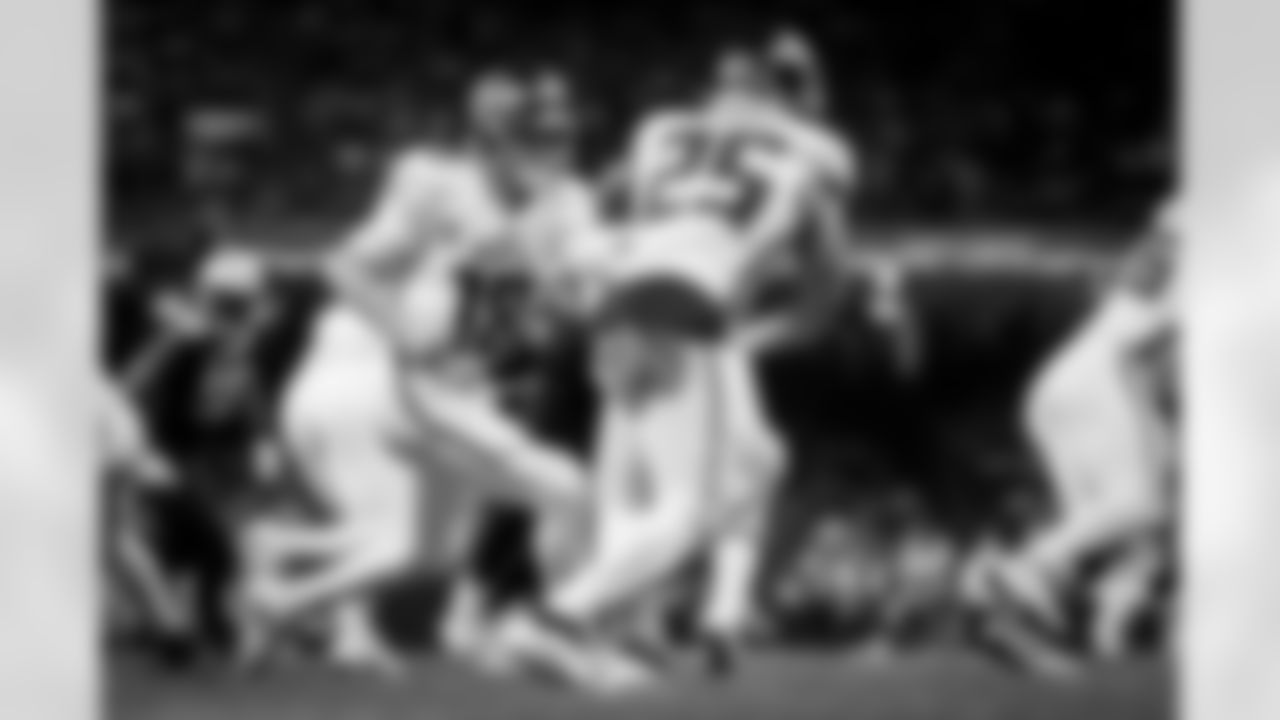
Atlanta Falcons quarterback Kirk Cousins #18 hands off to running back Tyler Allgeier #25 during the first quarter of the Week 10 Game against the New Orleans Saints at Caesars Superdome in New Orleans, Louisiana on Sunday, November 10, 2024. (Photo by Shanna Lockwood/Atlanta Falcons)

Atlanta Falcons running back Bijan Robinson #7 and running back Tyler Allgeier #25 prior to the Week 10 Game against the New Orleans Saints at Caesars Superdome in New Orleans, Louisiana on Sunday, November 10, 2024. (Photo by Shanna Lockwood/Atlanta Falcons)
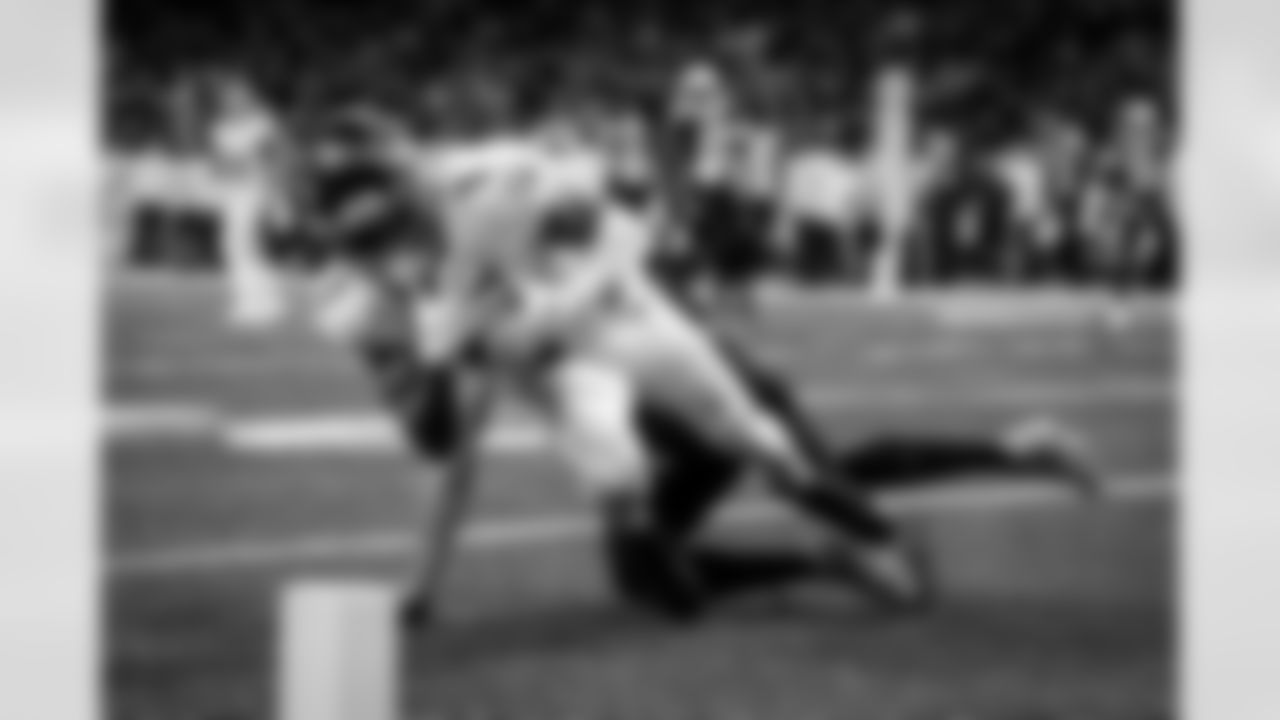
Atlanta Falcons wide receiver Darnell Mooney #1 catches a pass during the second quarter of the Week 10 Game against the New Orleans Saints at Caesars Superdome in New Orleans, Louisiana on Sunday, November 10, 2024. (Photo by Shanna Lockwood/Atlanta Falcons)

Atlanta Falcons offensive lineman Matt Hennessy #61 walks out prior to the Week 10 Game against the New Orleans Saints at Caesars Superdome in New Orleans, Louisiana on Sunday, November 10, 2024. (Photo by Shanna Lockwood/Atlanta Falcons)

Atlanta Falcons wide receiver Darnell Mooney #1 reacts after a first down reception during the second quarter of the Week 10 Game against the New Orleans Saints at Caesars Superdome in New Orleans, Louisiana on Sunday, November 10, 2024. (Photo by Shanna Lockwood/Atlanta Falcons)

Atlanta Falcons cornerback Kevin King #32, cornerback Antonio Hamilton Sr. #33, and cornerback Dee Alford #20 prior to the Week 10 Game against the New Orleans Saints at Caesars Superdome in New Orleans, Louisiana on Sunday, November 10, 2024. (Photo by Shanna Lockwood/Atlanta Falcons)
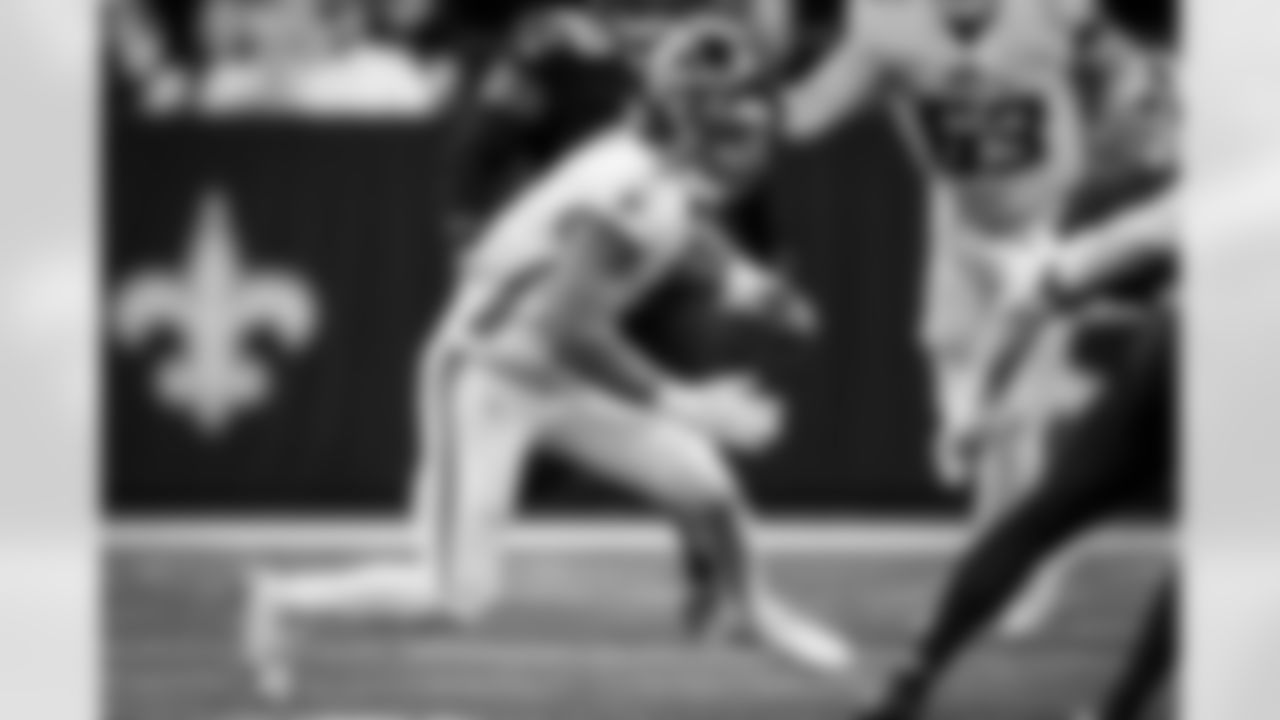
Atlanta Falcons running back Bijan Robinson #7 rushes during the fourth quarter of the Week 10 Game against the New Orleans Saints at Caesars Superdome in New Orleans, Louisiana on Sunday, November 10, 2024. (Photo by Taylor McLaughlin/Atlanta Falcons)

Atlanta Falcons wide receiver Drake London #5 catches a pass during the first quarter of the Week 10 Game against the New Orleans Saints at Caesars Superdome in New Orleans, Louisiana on Sunday, November 10, 2024. (Photo by Taylor McLaughlin/Atlanta Falcons)
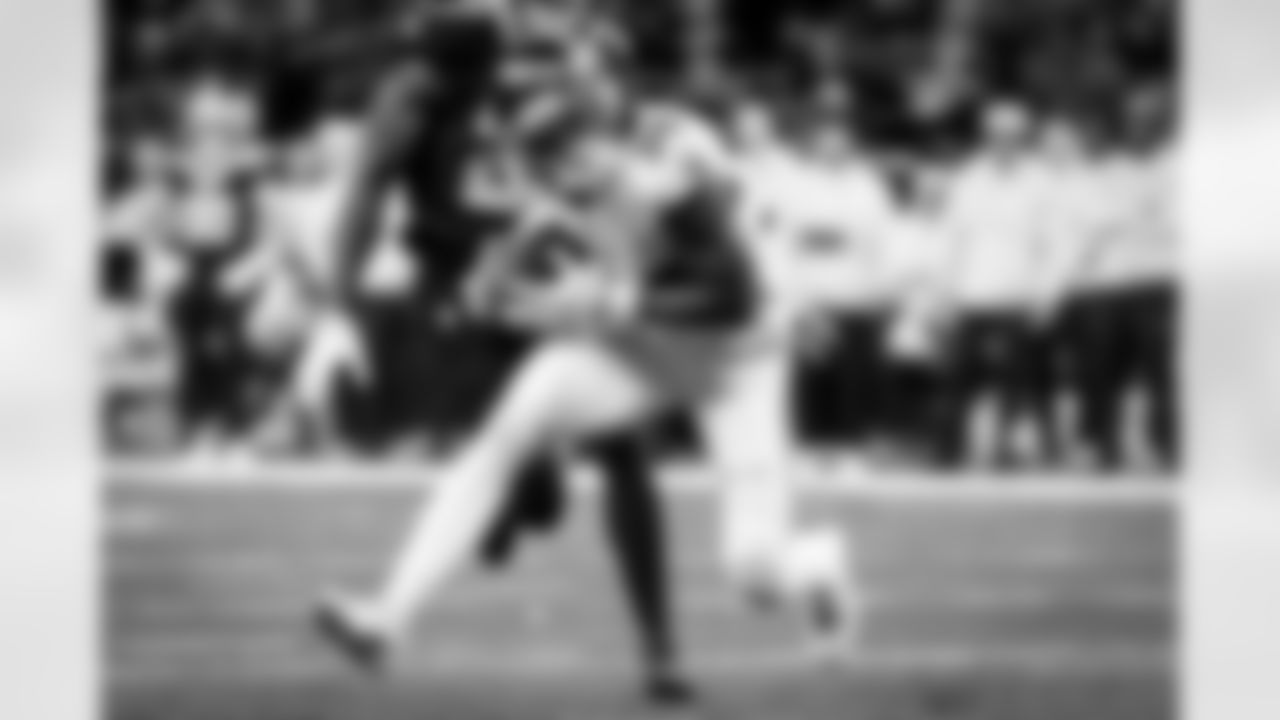
Atlanta Falcons wide receiver Ray-Ray McCloud III #34 runs after a catch during the third quarter of the Week 10 Game against the New Orleans Saints at Caesars Superdome in New Orleans, Louisiana on Sunday, November 10, 2024. (Photo by Shanna Lockwood/Atlanta Falcons)

Atlanta Falcons wide receiver Darnell Mooney #1 arrives prior to the Week 10 Game against the New Orleans Saints at Caesars Superdome in New Orleans, Louisiana on Sunday, November 10, 2024. (Photo by Taylor McLaughlin/Atlanta Falcons)
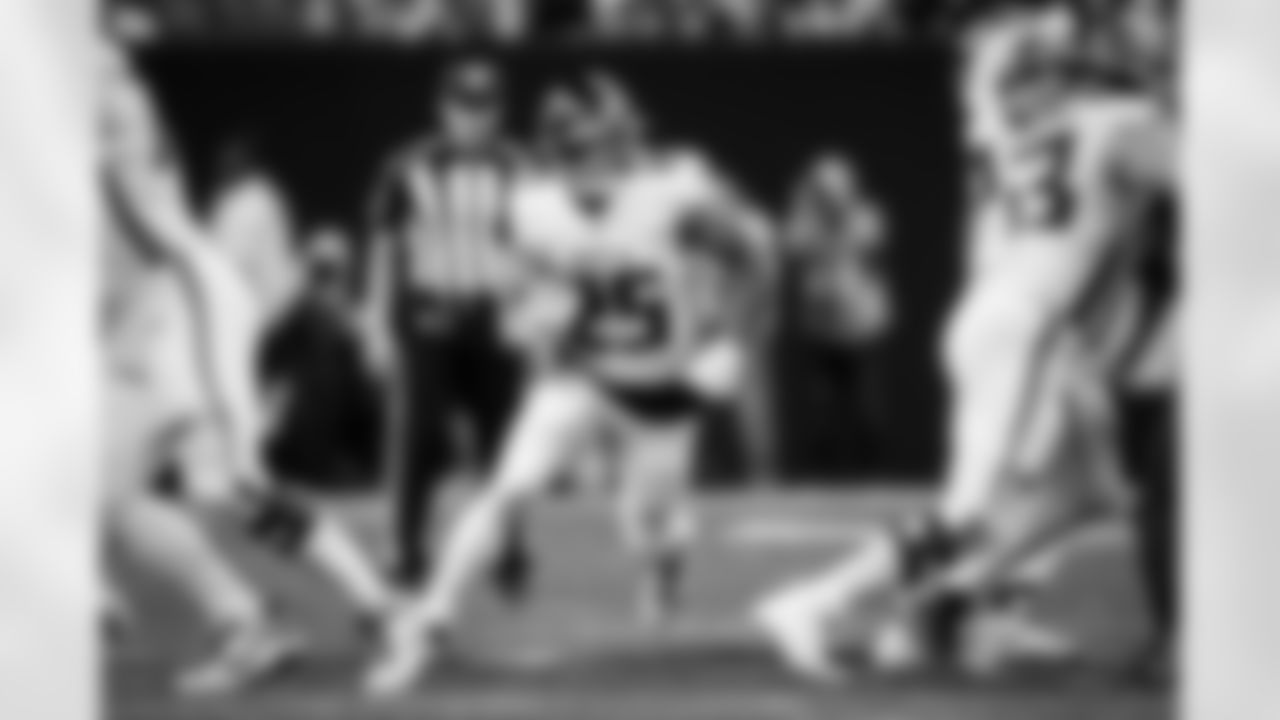
Atlanta Falcons running back Tyler Allgeier #25 rushes during the second quarter of the Week 10 Game against the New Orleans Saints at Caesars Superdome in New Orleans, Louisiana on Sunday, November 10, 2024. (Photo by Taylor McLaughlin/Atlanta Falcons)
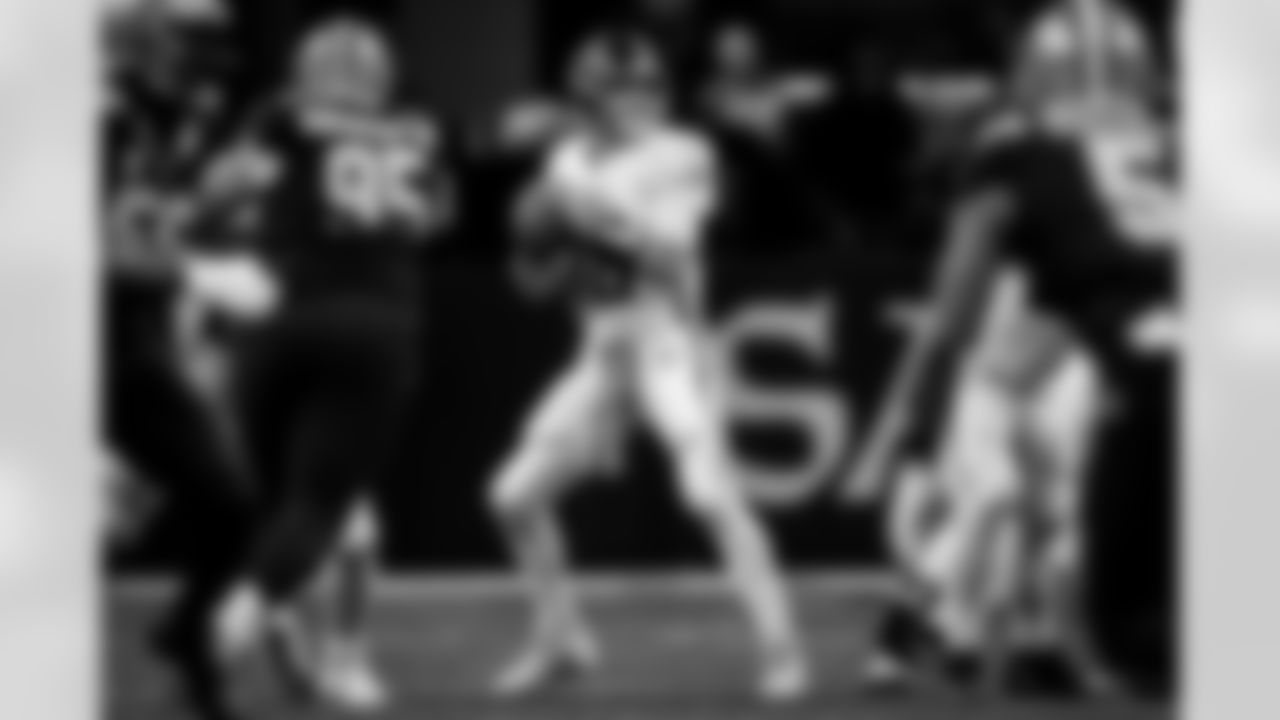
Atlanta Falcons quarterback Kirk Cousins #18 looks to pass during the first quarter of the Week 10 Game against the New Orleans Saints at Caesars Superdome in New Orleans, Louisiana on Sunday, November 10, 2024. (Photo by Jay Bendlin/Atlanta Falcons)
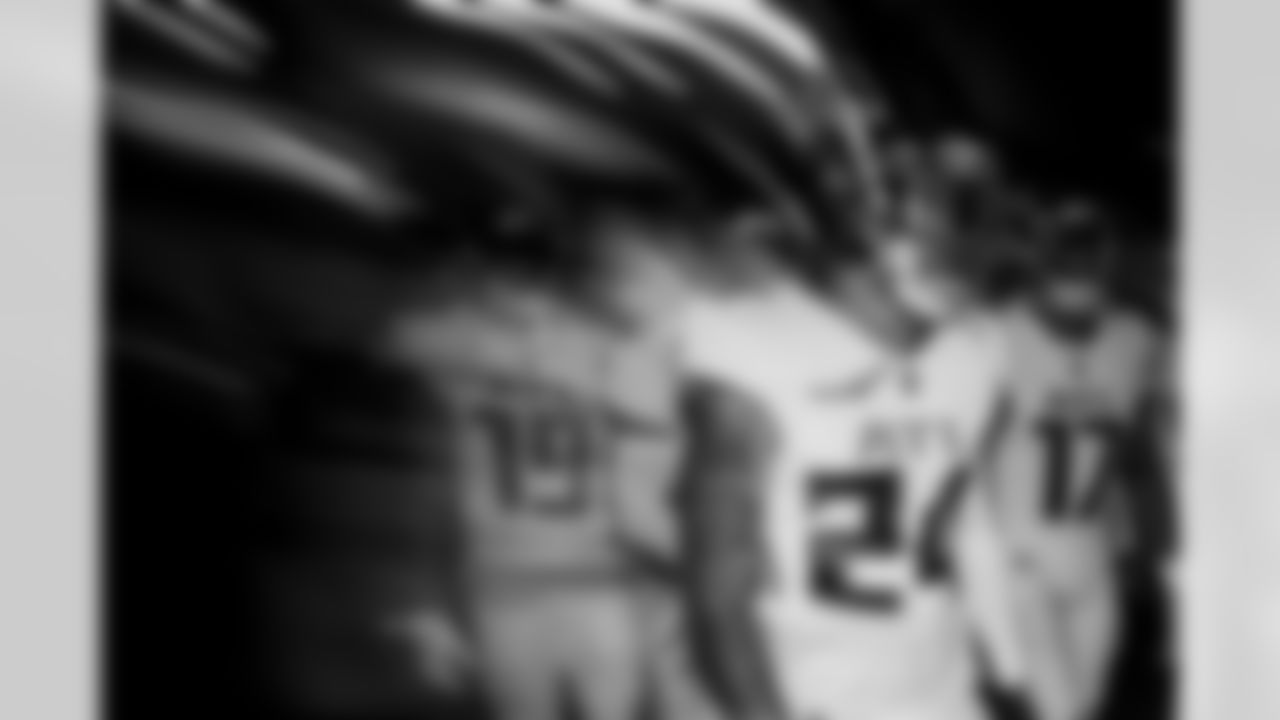
Atlanta Falcons cornerback A.J. Terrell #24 walks out prior to the Week 10 Game against the New Orleans Saints at Caesars Superdome in New Orleans, Louisiana on Sunday, November 10, 2024. (Photo by Shanna Lockwood/Atlanta Falcons)

Scene setters prior to the Week 10 Game against the New Orleans Saints at Caesars Superdome in New Orleans, Louisiana on Sunday, November 10, 2024. (Photo by Taylor McLaughlin/Atlanta Falcons)

Atlanta Falcons head coach Raheem Morris arrives prior to the Week 10 Game against the New Orleans Saints at Caesars Superdome in New Orleans, Louisiana on Sunday, November 10, 2024. (Photo by Jay Bendlin/Atlanta Falcons)
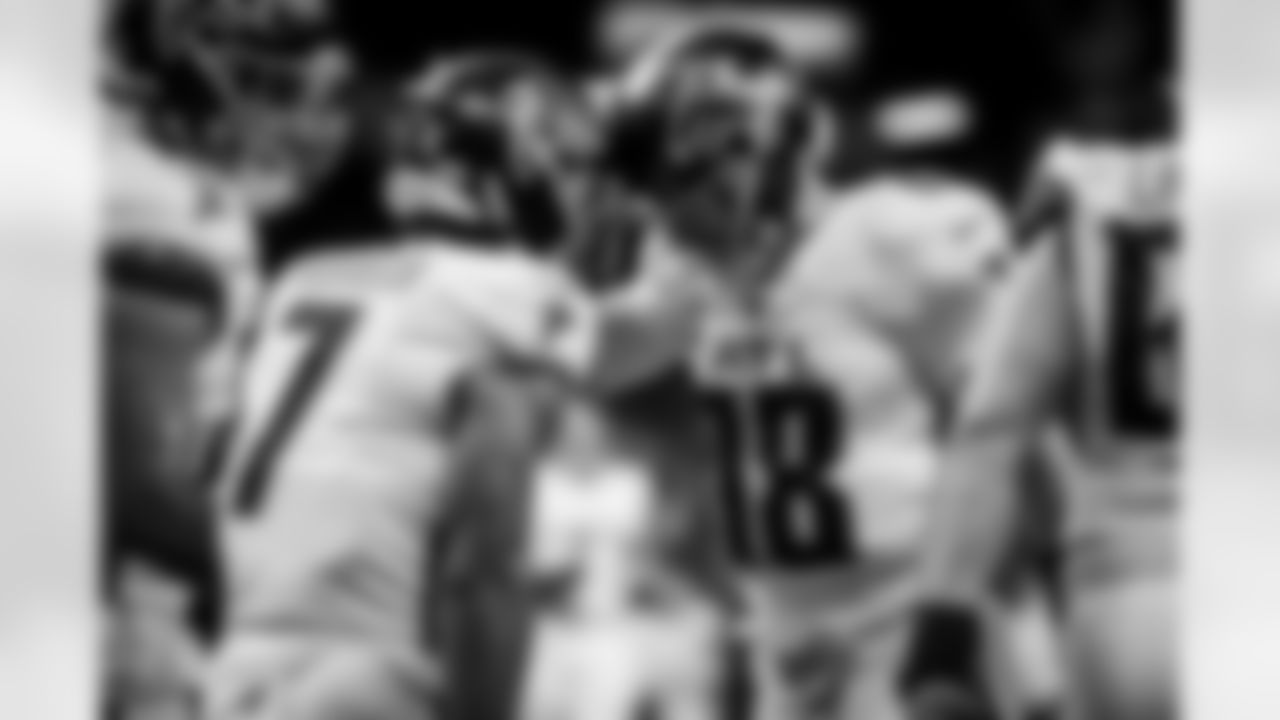
Atlanta Falcons running back Bijan Robinson #7 celebrates with quarterback Kirk Cousins #18 after a touchdown during the second quarter of the Week 10 Game against the New Orleans Saints at Caesars Superdome in New Orleans, Louisiana on Sunday, November 10, 2024. (Photo by Jay Bendlin/Atlanta Falcons)
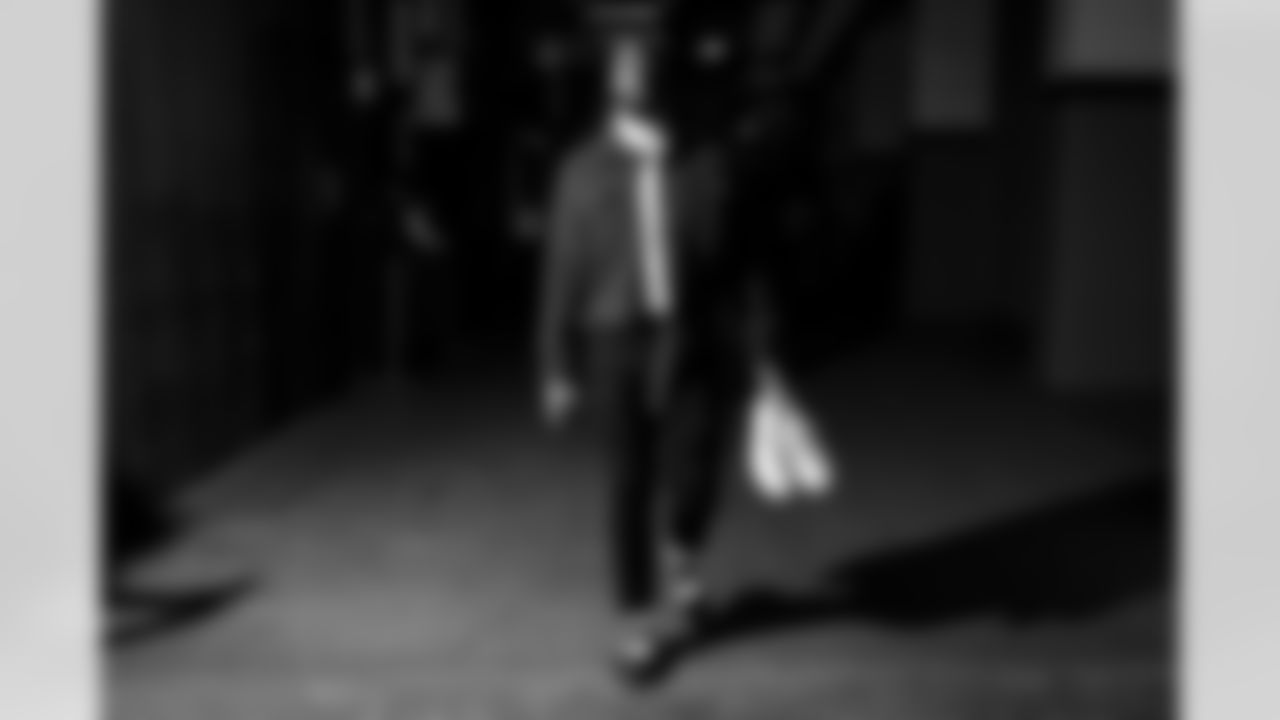
Atlanta Falcons outside linebacker Matthew Judon #15 arrives prior to the Week 10 Game against the New Orleans Saints at Caesars Superdome in New Orleans, Louisiana on Sunday, November 10, 2024. (Photo by Jay Bendlin/Atlanta Falcons)
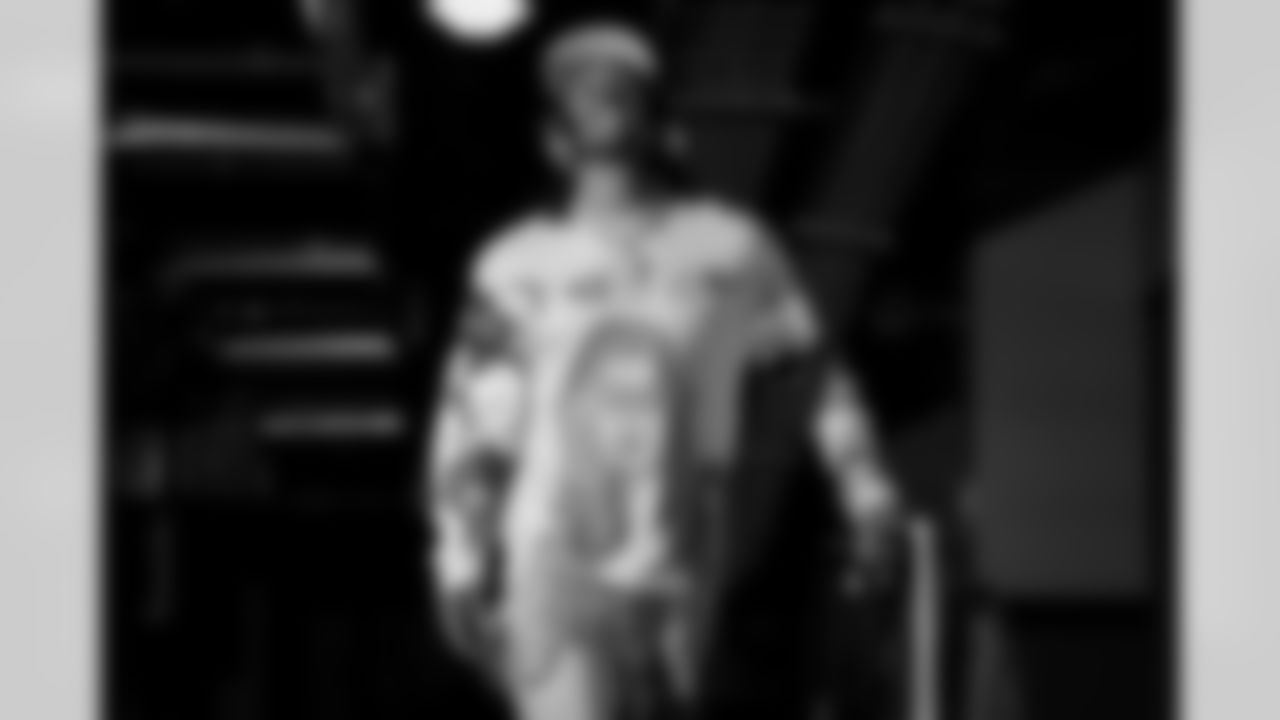
Atlanta Falcons wide receiver Ray-Ray McCloud III #34 arrives prior to the Week 10 Game against the New Orleans Saints at Caesars Superdome in New Orleans, Louisiana on Sunday, November 10, 2024. (Photo by Jay Bendlin/Atlanta Falcons)

Atlanta Falcons defensive lineman Grady Jarrett #97 huddle prior to the Week 10 Game against the New Orleans Saints at Caesars Superdome in New Orleans, Louisiana on Sunday, November 10, 2024. (Photo by Jay Bendlin/Atlanta Falcons)

Atlanta Falcons safety Justin Simmons #31 arrives prior to the Week 10 Game against the New Orleans Saints at Caesars Superdome in New Orleans, Louisiana on Sunday, November 10, 2024. (Photo by Jay Bendlin/Atlanta Falcons)

Atlanta Falcons wide receiver KhaDarel Hodge #12 prior to the Week 10 Game against the New Orleans Saints at Caesars Superdome in New Orleans, Louisiana on Sunday, November 10, 2024. (Photo by Jay Bendlin/Atlanta Falcons)
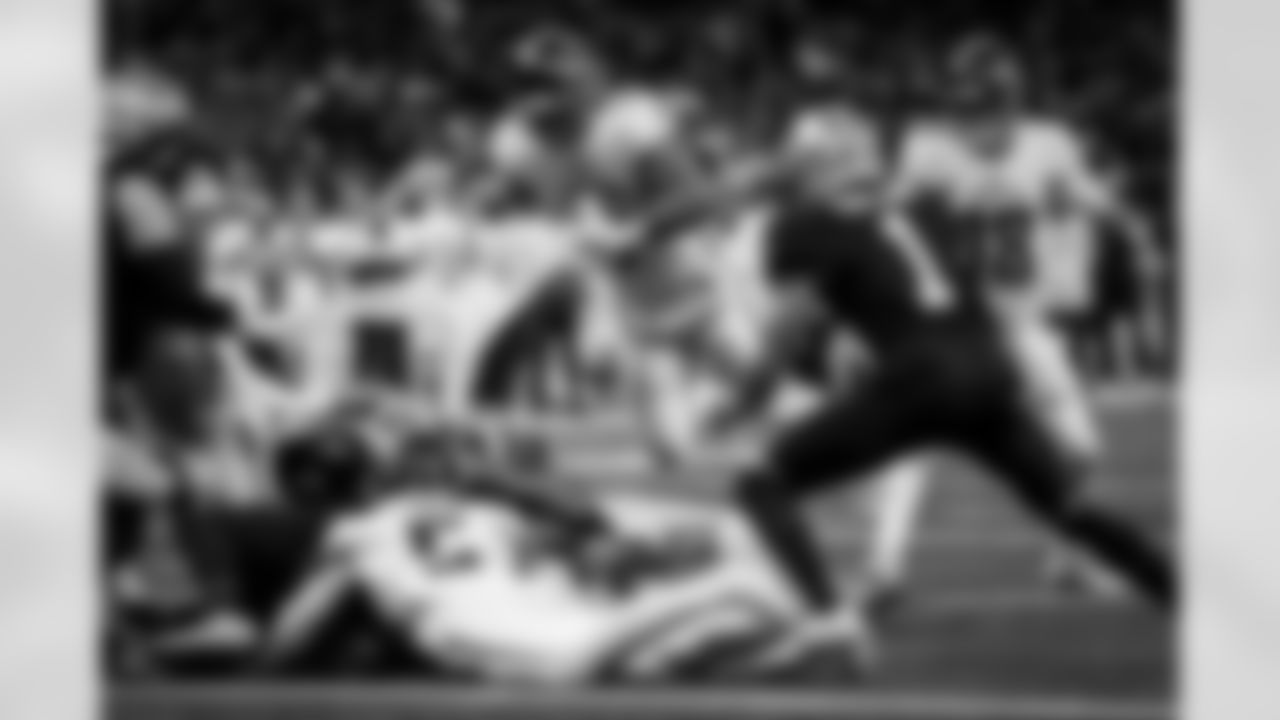
Atlanta Falcons running back Bijan Robinson #7 scores a touchdown during the second quarter of the Week 10 Game against the New Orleans Saints at Caesars Superdome in New Orleans, Louisiana on Sunday, November 10, 2024. (Photo by Jay Bendlin/Atlanta Falcons)

Atlanta Falcons defensive lineman Zach Harrison #96 prior to the Week 10 Game against the New Orleans Saints at Caesars Superdome in New Orleans, Louisiana on Sunday, November 10, 2024. (Photo by Jay Bendlin/Atlanta Falcons)
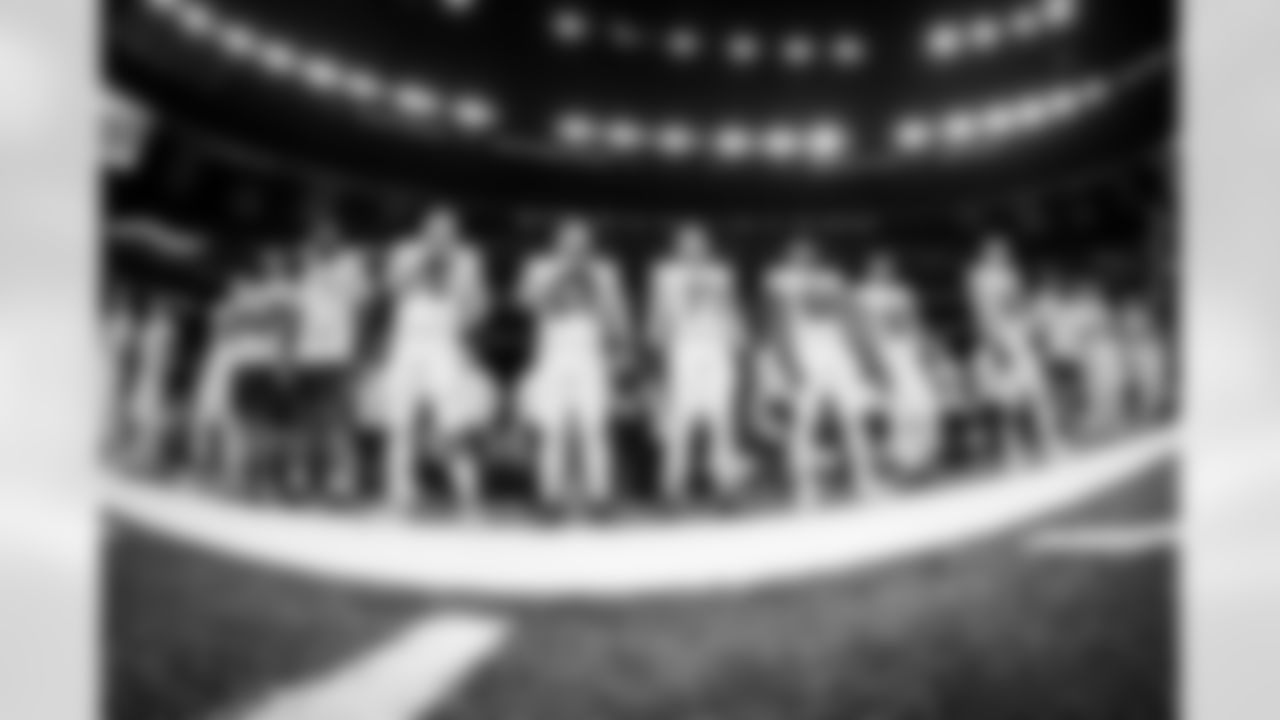
Sideline view during the national anthem prior to the Week 10 Game against the New Orleans Saints at Caesars Superdome in New Orleans, Louisiana on Sunday, November 10, 2024. (Photo by Jay Bendlin/Atlanta Falcons)



